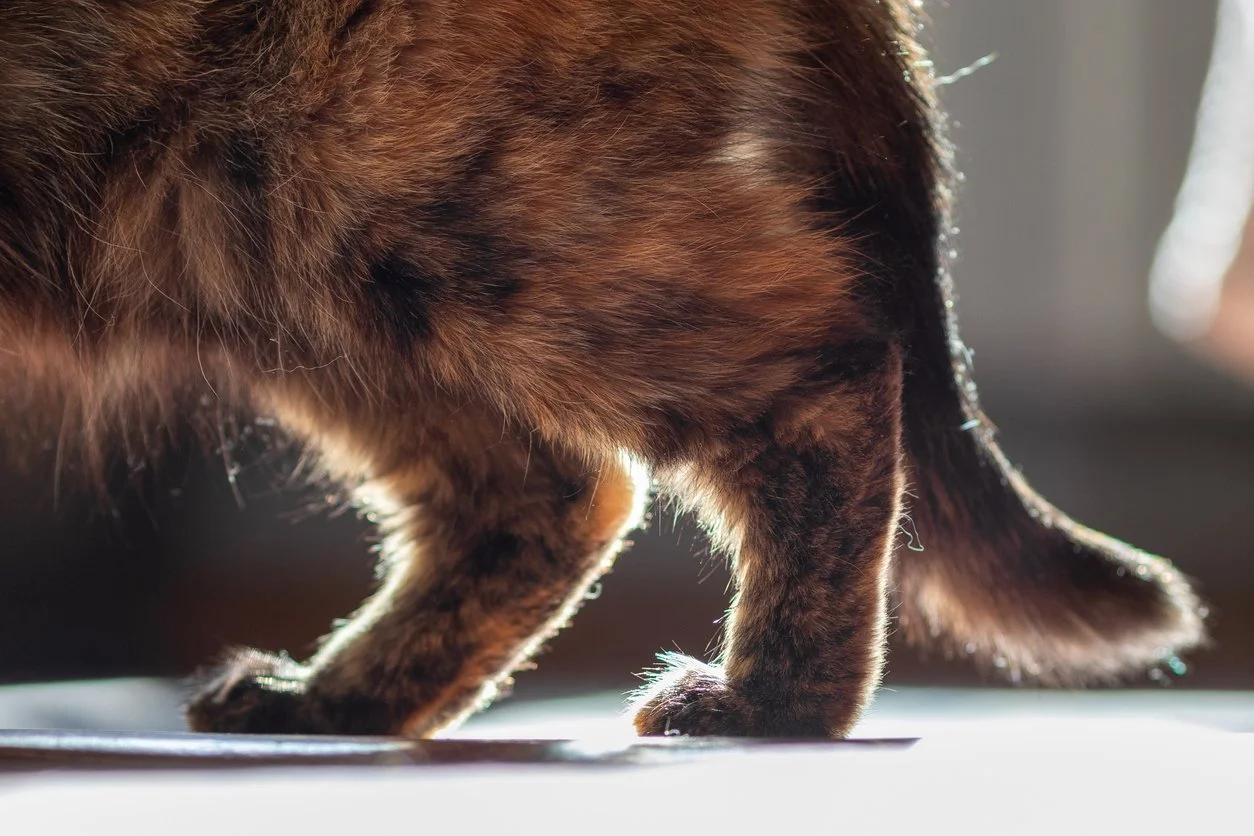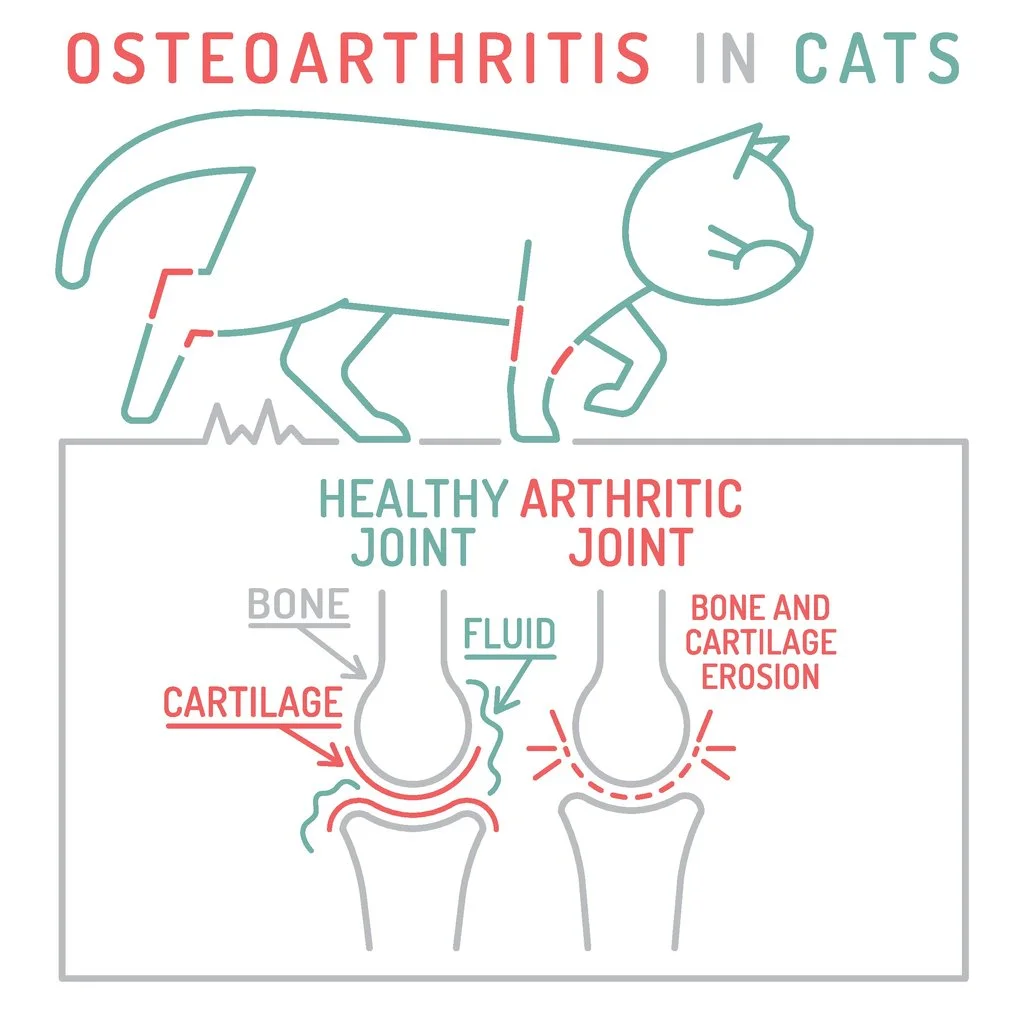Arthritis in Cats
Arthritis in cats, also known as feline osteoarthritis or degenerative joint disease, is a common condition that affects the joints, causing pain, inflammation, and a reduction in the cat's mobility. It is more common in older cats, but it can also affect younger ones, especially those with certain predisposing factors.
Causes:
Age: Older cats are more prone to arthritis as the wear and tear on their joints over time can lead to degeneration.
Joint instability: Cats with joint instability due to congenital conditions or injuries are at a higher risk.
Obesity: Overweight cats are more likely to develop arthritis as excess weight puts additional stress on their joints.
Genetics: Some breeds are more predisposed to arthritis, such as Persian cats.
Joint infections or injuries: Previous joint infections or injuries can increase the likelihood of developing arthritis.
Symptoms:
Limping or lameness: Cats may show signs of favoring one limb or may have difficulty putting weight on a specific joint.
Reduced activity: Arthritic cats may become less active, reluctant to jump or play, and may show signs of stiffness, especially after resting.
Change in grooming habits: Cats with arthritis may have difficulty reaching certain parts of their body for grooming, leading to a lack of cleanliness in those areas.
Behavioral changes: Cats in pain may exhibit changes in behavior, such as aggression, irritability, or withdrawal.
Changes in litter box habits: Arthritic cats may find it painful to squat in the litter box, leading to changes in urination or defecation habits.
Diagnosis and Treatment:
If you suspect your cat has arthritis, it's essential to consult a veterinarian for a proper diagnosis. The vet may perform a physical examination, take X-rays, and consider the cat's medical history. Treatment options may include:
Medications: Non-steroidal anti-inflammatory drugs (NSAIDs) or pain relievers may be prescribed to alleviate pain and reduce inflammation. There is even a monthly shot for cats with arthritis.
Joint supplements: Omega-3 fatty acids and glucosamine supplements may help improve joint health.
Weight management: If obesity is a contributing factor, a weight management plan may be recommended.
Physical therapy: Gentle exercises and physical therapy can help maintain joint mobility and reduce stiffness.
Comfortable environment: Providing a warm and comfortable environment, with soft bedding and easy access to food and litter boxes, can enhance the cat's comfort.
Specialized diets: Some diets formulated for joint health may be recommended.
It's crucial to work closely with a veterinarian to manage arthritis in cats and improve their quality of life. Regular veterinary check-ups can help monitor the cat's condition and adjust the treatment plan as needed.


